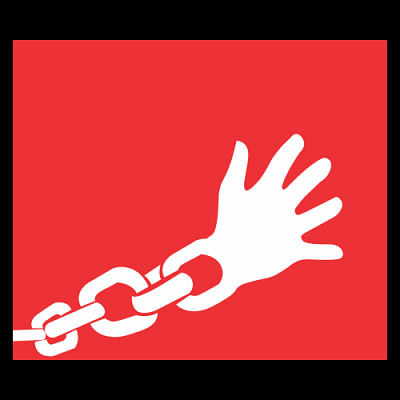Top traffickers out of dragnet

The United Nations High Commissioner for Refugees (UNHCR) chief in Dhaka yesterday expressed frustration over the government's sluggish role in identifying local kingpins behind human trafficking that got international focus after discovery of mass graves in Thailand and Malaysia.
“In Malaysia and Thailand, we have seen senior level officials involved in the crime. So far in Bangladesh, I can understand from the media that law enforcers have arrested only rickshaw pullers... But I would hope the Bangladesh authorities will investigate to ensure the top of the ladder of the kingpins be prosecuted,” Stina Ljungdell said.
Addressing a roundtable on “Doings in the end of human trafficking” organised by Shushashoner Janno Nagorik (Shujan) in the capital's Jatiya Press Club, the UNHCR country director said it would be naïve to think that only rickshaw pullers and Rohingyas are involved in an international crime syndicate.
Members of the civil society who were present at the roundtable echoed Stina Ljungdell and demanded that the government identify the Bangladeshi kingpins and arrest them.
The UNHCR chief said it was essential to address the root cause in Myanmar to end human trafficking. “I think we need to have a regional consultation to make sure that the root cause in Myanmar is addressed. I think that is very much possible,” she added.
She further said human trafficking got a massive turn from the initial smuggling of jobseekers for a lucrative business through the sea. Now, the people are being trafficked by using larger ships instead of small fishing boats to realise ransom and sell them as slaves to fishing industries in Thailand, she said, adding that many ultimately die for their failure to pay the ransom.
Bangladesh Environmental Lawyers Association (Bela) Chief Executive Syeda Rizwana Hasan alleged that the government seemed reluctant to identify and arrest the kingpins in Bangladesh.
“It is really surprising that people are leaving the country without travel documents by the sea, but the law-enforcement agencies don't know anything,” she said, adding that the government must arrest the ringleaders of the trafficking gangs and place them before the public.
Renowned rights activist Hamida Hossain said, “The government formed committees at district, upazila and union levels to prevent human trafficking. Lawmakers have been made members of those committees. But what have they done so far?”
Former adviser to a caretaker government M Hafizuddin Khan said human trafficking had been going on for long in the country, but the government failed to check this menace. Addressing the roundtable as the chair, he said the law-enforcement agencies must play a significant role in preventing the heinous crime.
Badiul Alam Majumdar, secretary of Shujan, said it was not enough to only punish the human traffickers, as it was also essential to address the root causes of the problem.
Refugee and Migratory Movements Research Unit (RMMRU) Executive Director Prof CR Abrar said the government's flawed policies and barriers in legal migration were the root causes for human trafficking.
Former cabinet secretary Ali Imam Majumder, columnist Syed Abul Moksud, media analyst Mohammad Jahangir, among others, spoke at the programme.

 For all latest news, follow The Daily Star's Google News channel.
For all latest news, follow The Daily Star's Google News channel. 



Comments